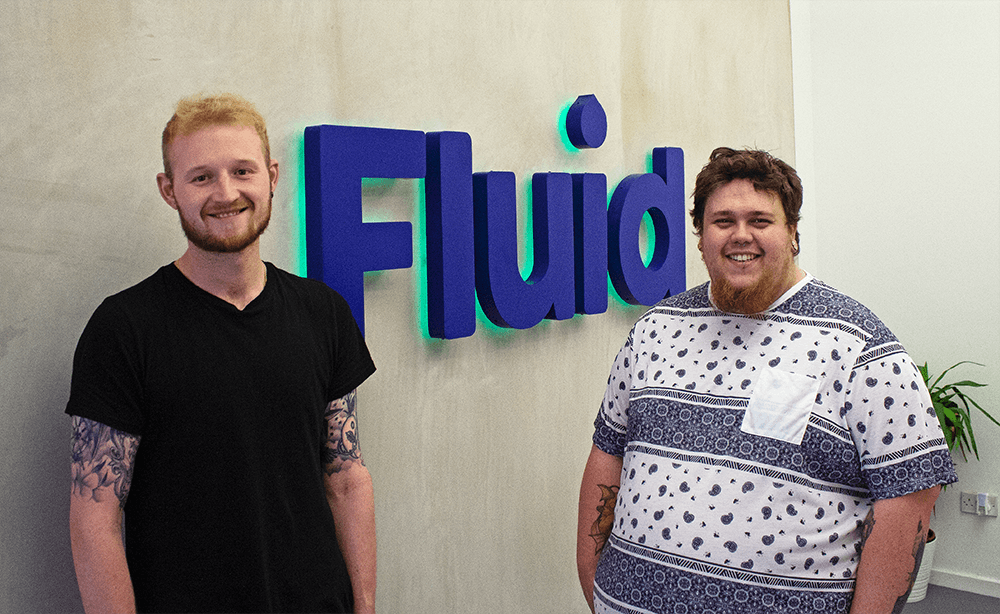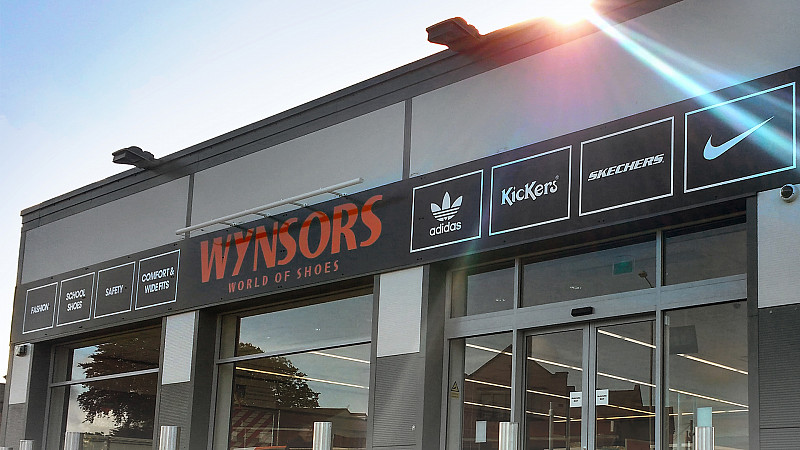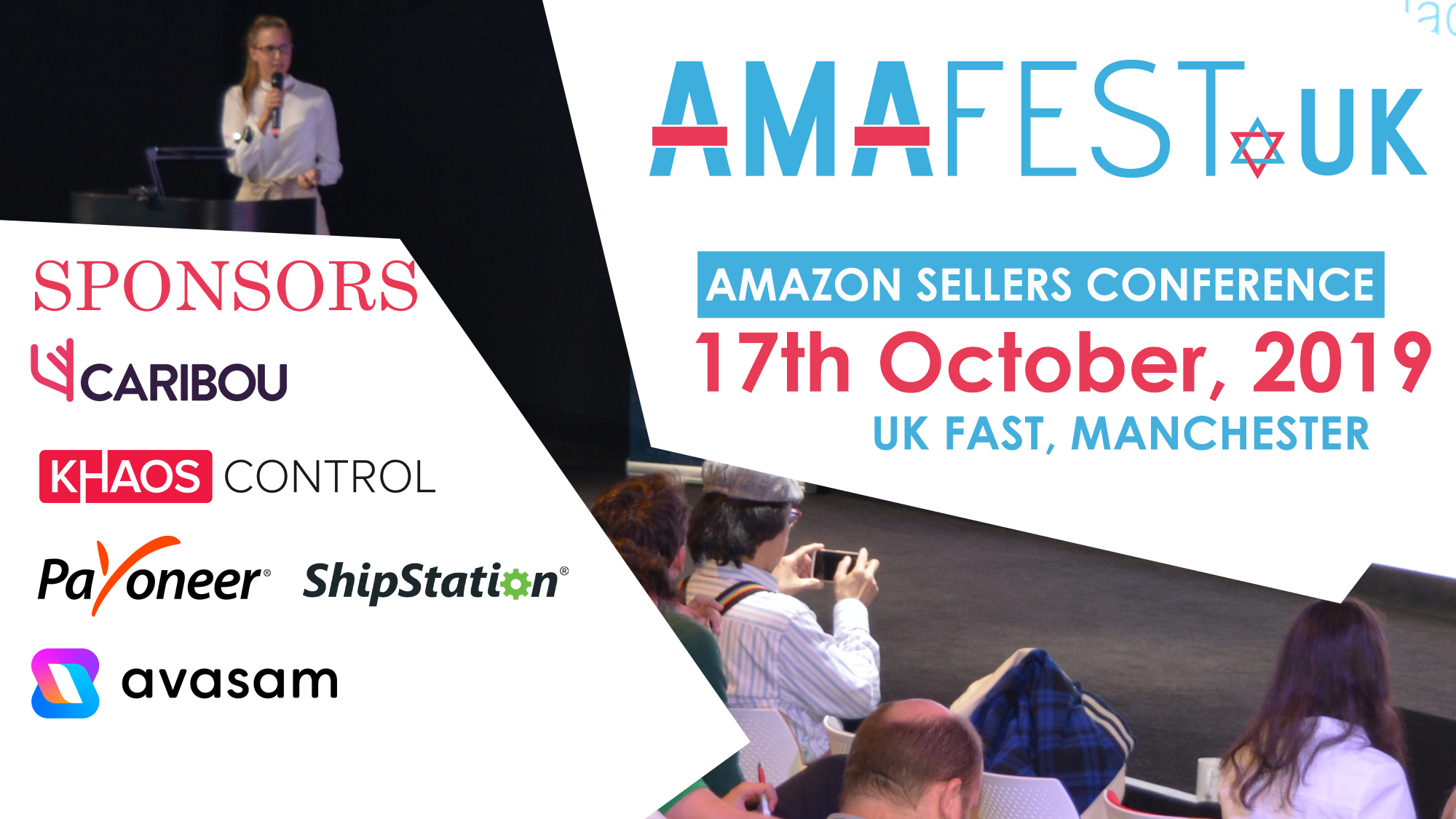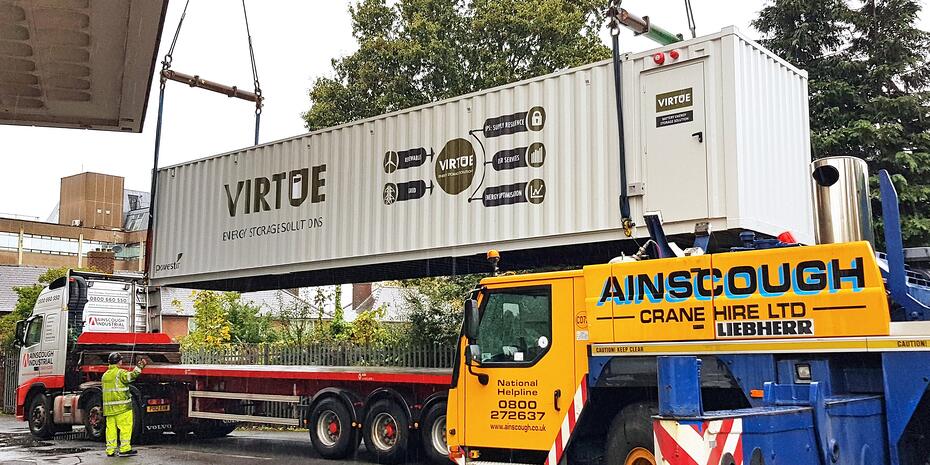
Manchester is home to a large and growing ecommerce sector, with big names like Boohoo, THG, and AO operating alongside fast-moving startups like Beauty Bay and Sneak Energy.
But that’s not all there is to the sector. If you want to understand Manchester as an ecommerce city, you need to talk to digital agencies as well as the retailers. Companies in the city have long served the ecommerce market with services like web and app development, SEO, and advertising.
The business opportunities in supporting online selling have grown enormously in the wake of the pandemic as many customers swapped physical shopping for online, whether by necessity or choice. But specialist ecommerce agencies have been part of Manchester’s digital sector for well over a decade.
To pick just a few examples, Space 48 and One iota emerged in 2008 and 2010 respectively, just as online shop platforms like Magento and social media like Facebook began to offer savvy sellers new ways to reach and serve customers. Established companies like PushON, CTI Digital, and Apadmi moved into the space from the second half of the 2000s onwards, recognising the opportunity to help businesses sell online.
Over time, they were joined by newer names like Digital Media Team, which launched in 2015 and began to specialise in digital advertising for ecommerce companies two years later. It has recently started offering web design services, and marketing services for Amazon’s platform.
But why has Manchester attracted such a throng of activity in the ecommerce space?
Manchester: an ecommerce hub
“Manchester is a trader’s city,” says Simon Wharton, director of business strategy at development and marketing agency PushON as he points to the city’s long history at the sharp end of buying and selling. “There's always someone you'll speak to who used to have a stall on a market somewhere, who knows what margin means, who knows what volume means, who knows how to shift things and has by necessity a culture of making sharp business decisions.”
CTI Digital’s commercial director, Tim Edwards, adds that if you combine that heritage with the city’s location in the centre of Great Britain—good for logistics and distribution—and its growth as a hive of digital activity in recent years, you get a city that is the perfect host for both ecommerce companies and the agencies that support them.
Garry Partington, CEO at digital solutions specialist Apadmi, which counts retail as one of its key target industries, points out that this heritage was reflected in some of Greater Manchester’s early ecommerce stars, like LateRooms, and AO.com. “Companies that need support will see agencies grow around them.”
And that support is a theme that comes up when many sector leaders describe Manchester. One iota’s CEO, Christian Brooks says he finds Manchester to have a supportive, well-connected business community where people in the industry are keen to help each other. He names Manchester Digital and Prolific North as organisations that are particularly supportive of the businesses working with the ecommerce sector.
CTI Digital has grown into a 175-person business, largely through acquisition as it absorbed other agencies in the North of England to reflect the increasing demands of clients. The company now has a dedicated brand, Supercharged Commerce, to serve the needs of forward-thinking retailers. It even has a ‘shop’ inside its Ancoats HQ, where it can demonstrate omichannel selling technology.
CTI Digital’s Edwards, who founded Supercharged Commerce, agrees that Manchester has everything ecommerce agencies need to thrive, with one exception: technology partners—the companies that develop the platforms they build upon—tend to hold UK events in London. He feels more recognition of the thriving Manchester ecommerce scene would be no bad thing in this regard.
And it seems more people outside of the Manchester area are getting to learn about what the city has to offer. The pandemic hasn’t just increased demand for online retail, it’s increased demand for a specialist ecommerce services supply chain, and this has helped some of them to grow beyond serving the local market for the first time.
“The fact that we're all partly remote now just makes it a lot easier,” says Kirsty Allen, operations manager at Digital Media Team. “Before, I think a lot of brands expected to work face-to-face with an agency… but now everyone's switched to the Zoom mindset and you realise that you could serve a client in Australia if you wanted to.”
The battle for talent
Some longer established companies who already had national and international clients have also discovered a new opportunity thanks to the pandemic; a chance to get ahead in the competitive recruitment market by hiring remote staff.
Yes, as with any digital industry hotspot, Manchester’s ecommerce sector attracts specialist development talent, but there isn’t always enough to go around.
Digital Media Team’s Allen notes that recruitment in Manchester has become noticeably more difficult in 2021. CTI Digital’s Edwards says that while marketing talent is somewhat easier to come by in Manchester, it’s developers where his company’s real bottleneck is.
PushON’s Wharton describes the recruitment situation as “insanely tough”. And although he confesses to a personal rule whereby he won’t poach staff from anyone he goes for a beer with (a particular challenge if you’re as well-connected as Wharton), it’s clear that recruitment is difficult at the moment no matter what way you go about it.
However, Apadmi’s Partington says the challenges are nothing new. “I remember I was on BBC Radio Five Live eight years ago talking about the skills crisis in the Manchester digital sector. It’s a never-ending problem.”
And while the increasing number of large tech and digital employers in the city has done nothing to ease recruitment challenges, the city is responding. Both Partington and Space 48’s Jon Woodall highlight the role of coding schools like Manchester Codes, Northcoders, and Code Nation, which provide a pipeline of new developers who have retrained from other careers, bringing additional talent into the industry.
Woodall also notes a need for more to be done to attract school leavers who don’t go to university into the digital space through apprenticeships and support for businesses that want to offer them.
Digital Media Team is addressing the issue of requiring more junior staff with the recent launch of an academy. “We’ll be taking on local apprentices and helping them get trained up across our service areas,” says Allen. “It’s crucial at a time like this.”
One iota’s Brooks says that attracting and retaining talent comes partly down to providing the right kind of working culture. He says his agency has found success here by giving developers time to work on research and development projects in addition to the client work that pays the bills. “It's one of the ways that we as a business keep fresh, keep current and relevant... and the developers enjoy it as well.”
A strong working culture can pay dividends in tough times. Space 48’s Woodall is proud of how his team “went remote seamlessly” in the face of the pandemic. “We pulled together as a team. The way that we've collaborated, the way that we've grown… It's because of our culture.”
And going remote even helped that culture develop further, Woodall says. “Before the pandemic we were distributed. We had a head office in Manchester, with an office down in Bath and an office in Dublin, which came with some challenges and differences that were hard to overcome. Being forced to go remote reduced those differences. It’s brought us closer together and it's made everyone more accessible.”
Woodall also sees going remote as a big opportunity for breaking through the battle for talent. He highlights the ability to “cast the net wider” and find the right people wherever they are.
PushON has also embraced the benefits of casting a wider net. Wharton says recruitment is tough all across the UK at the moment, and so the company has already started working with overseas talent. “We've got some very senior contractors; we don't really look for juniors. We're not looking for a cost saving with overseas recruitment, we're looking for the very best that we can get.”
To further develop this side of its business, PushON is in the process of setting up a wholly-owned subsidiary overseas to grow capacity and international business.
Edwards says CTI Digital is also exploring remote recruitment but emphasises the importance of having a strong local presence, too. “We have clients who come to us because we have so many staff based in Manchester. There’s a value to that face-to-face contact.”
Digital Media Team hasn’t explored remote recruitment yet but is open to the idea, and while One iota isn’t currently using remote staff, it’s “in the mix for the future”.
How ecommerce agencies will evolve
You only have to walk around parts of Manchester city centre to see how new shops have begun to spring up to fill the space left by those lost to the pandemic. So one area agencies serving the ecommerce market will increasingly see demand for is helping businesses bridge the gap between physical and online retail.
Apadmi opened its doors in 2009 to focus on mobile software, shortly after the Apple App Store had launched to kickstart the mobile app revolution. Now the company is on top of another emerging trend.
“We get involved in developing hybrid, complex solutions; bringing together both digital and physical to drive a commerce journey,” says Apadmi’s Partington. “We talk a lot about how service design helps bridge physical and digital hybrid design journeys. And that’s when it gets complicated, but it also gets quite fun; especially as you start bringing in behavioural design aspects - how do you influence and create the right behavioural design choices?”
And even in the entirely online world there are new challenges, given how the likes of Amazon set high consumer expectations other retailers are keen to emulate. “You've got to ask yourself, ‘why is Amazon winning? A lot of purchases on Amazon take three clicks to buy, while on comparable websites it can take 27 clicks,” says Partington.
One iota has also adjusted its offering to reflect demand for a more integrated, synchronised online and offline approach to retail. Brooks highlights how the company now uses Google’s Flutter user interface toolkit to deliver apps built on the same codebase for mobile devices and in-store devices alike.
A ‘feeding frenzy’ of consolidation
As consumer expectations increase, the stakes are becoming ever higher in online retail. This leads clients to require increasingly more from their agencies.
CTI Digital’s Edwards says this demand for additional services will help drive increased consolidation in the Manchester ecommerce supply chain. He sees larger agencies acquiring smaller ones to absorb more areas of expertise, just as CTI Digital itself has done.
PushON’s Wharton describes his sector as facing a “feeding frenzy” of consolidation over the next three years or more. “The pandemic has accelerated demand for ecommerce by maybe five years.” You can pick up business without trying too hard, he says, but the challenge is having the capacity to deliver the work. What’s more, bigger players in the agency space are keen to grow their ecommerce market share, further fuelling demand for acquisitions.
Wharton says PushON is exploring acquiring other agencies and has brought in external advisors to help it achieve “aggressive but sensible growth” over the next year.
Woodall says Space 48 is also exploring growth through acquisitions, following recent investment from private equity firm Foresight.
Apadmi’s Partington agrees that more consolidation is on the cards in Manchester, but he doesn’t think it’s only about keeping up with the demands of the market. “We're going to see some significant businesses that build up in Manchester and go on to take on the world. Some of these Manchester agencies are going to be much bigger forces internationally. That's really going to happen, and I know that's our aspiration.”
Written by Martin Bryant, Founder of Big Revolution.
If you'd like to meet some of the key players in Manchester's ecommerce sector as we discuss the technology driving the sector, join us on 30th September 2021 for our first Ecommerce Forum event.









